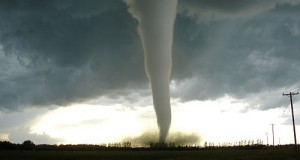 Most survivalists and preppers strive to be completely self-sufficient in the event of an emergency situation. However, have you considered including bartering as part of your overall plans, especially in anticipation of a possible unforeseeable and unavoidable event?
Most survivalists and preppers strive to be completely self-sufficient in the event of an emergency situation. However, have you considered including bartering as part of your overall plans, especially in anticipation of a possible unforeseeable and unavoidable event?
What if, regardless of all your efforts to remain self-reliant, you were to find yourself in a situation where bartering was your only real option to provide for your essential needs – where, if you don’t barter, you’ll likely die?
Ol’ Ben Franklin put it best when he said, “By failing to prepare, you are preparing to fail.”
It seems only prudent that we should prepare in a way to include all possible options, including bartering.
Bartering — that is, exchanging goods or services without using money — has been used for centuries. However, in a disaster or crisis, a potentially dangerous environment may occur that would otherwise not be present during a normal bartering transaction.
Here are just a few ideas/suggestions to think about when preparing for the possible necessity to barter under extreme conditions:
1. Safety first. In extreme situations it would be wise to barter with others after you have exhausted all other safer possibilities. Have a friend nearby for safety, and don’t allow anyone into your main storage area when bartering. Conduct any bartering at a separate location away from your storage area(s).
2. What items? Decide ahead of time what items you want to barter. Just about anything can be use, including foods that have long shelf life and even items such as batteries, books, matches, candy, toothbrushes, toothpaste, toilet paper, ibuprofen and first aid items. Also, consider trading skills.
3. Keep records. Make a list of your bartering items so that you don’t have to sort through your items to recall exactly what you have. Maintain an up-to-date inventory of these items.
4. Package your bartering items in smaller quantities. This will serve to prevent you from having to open up larger sealed containers — which could result in shortening the lifespan of some of your preps before you are actually ready to use them for your own needs.
5. Keep them separate. Maintain your bartering items in a separate place from your main storage area. This will help to reduce the risk of others learning exactly how much and what you have stored.
6. Use items that are due to expire first when bartering.
7. Be selective. Choose items that you could use for yourself. By doing so, any unused bartering item can become just another item for your preps.
What would you add to the list? Share your thoughts in the section below:
 Off The Grid News Better Ideas For Off The Grid Living
Off The Grid News Better Ideas For Off The Grid Living




